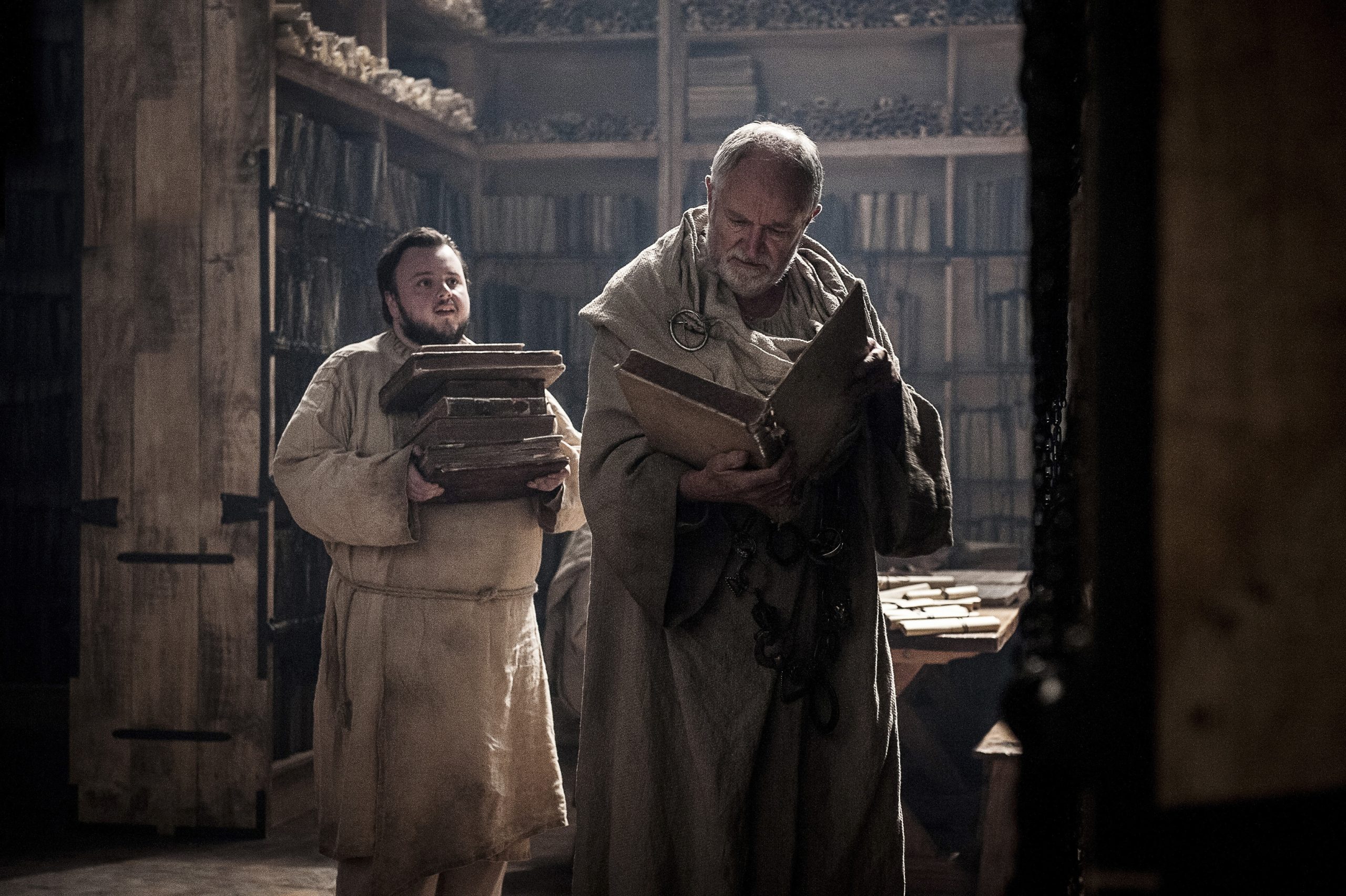“The white gaze: it traps black people in white imaginations. It is the eyes of a white schoolteacher who sees a black student and lowers expectations. It is the eyes of a white cop who sees a black person and looks twice – or worse, feels for a gun.” – Stan Grant, The Guardian
“When I write with a primarily black audience in mind I sound different. It’s the difference between the way I talk with a group of black friends and the way I talked in a racially mixed setting. I use more colloquialisms. I drop all the caveats and qualifications and I just speak. Most significantly, I am free. Free to be mad. Free to be devastated. Free to be tired. Free to be me.” – Jemar Tisby, Reformed African American Network
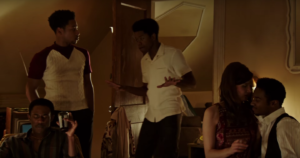 Racial politics are hard to evade when it comes to every aspect of modern-day life. Writing this very review is something of a challenging endeavor in that I am the epitome of privilege: white, male, straight & middle class (maybe lower middle class). I have opportunities and power afforded me due to my skin color, my gender, my class and my sexuality that are stunted (or nonexistent) for anyone else who does not fit my profile. Disagree with this idea all you want, but it does not change the facts that are flowing out of the educational and penal sectors, merely two clear examples of where privilege can be quantified. The fact that I am sitting here writing a review of a movie made about a black narrative that I will never fully understand the full emotional, psychological and racial weight and complexities of is almost futile.
Racial politics are hard to evade when it comes to every aspect of modern-day life. Writing this very review is something of a challenging endeavor in that I am the epitome of privilege: white, male, straight & middle class (maybe lower middle class). I have opportunities and power afforded me due to my skin color, my gender, my class and my sexuality that are stunted (or nonexistent) for anyone else who does not fit my profile. Disagree with this idea all you want, but it does not change the facts that are flowing out of the educational and penal sectors, merely two clear examples of where privilege can be quantified. The fact that I am sitting here writing a review of a movie made about a black narrative that I will never fully understand the full emotional, psychological and racial weight and complexities of is almost futile.
Almost.
I laid my cards on the table, because I want the reader to understand that the people one should really be reading reviews about this movie from are black critics. I, also, laid them down in order to showcase the one area of the film that I can speak to, I believe. It is the film’s central problem: black narratives should not be written or directed by white people. Stories that speak to an ongoing oppression that our nation has never properly repented of, let alone acknowledged, should be led by those who understand that oppression, that fear and that continued gaze of white people. Katheryn Bigelow, while a talented director in her own right, and Mark Boal, a consistent writer for her films, are invested in whiteness just like the rest of white people in America. This fact does not necessitate one’s awareness of it, just a lack of self evaluation of one’s privilege.
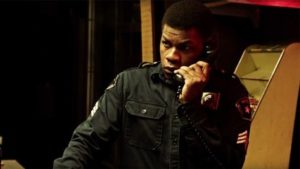 How do I mean that? How could a film about black people that has a cast that is majority black be invested in upholding the power dynamics that allows whiteness to be the standard by which everything is measured? It’s actually quite simple and Detroit is far from the first film to err in this way: the story ultimately becomes focused on white characters. In the case of Detroit, it is the three racist and corrupt cops that beat, psychologically tortured and killed black men at the Algiers Motel in Detroit during the riots of the Summer of 1967. The fact that the final 20-30 minutes of the film revolves around their trial and aftermath instead of devoting that time specifically to the destruction, sorrow and broken lives of the black men and their families who went through that horrible night.
How do I mean that? How could a film about black people that has a cast that is majority black be invested in upholding the power dynamics that allows whiteness to be the standard by which everything is measured? It’s actually quite simple and Detroit is far from the first film to err in this way: the story ultimately becomes focused on white characters. In the case of Detroit, it is the three racist and corrupt cops that beat, psychologically tortured and killed black men at the Algiers Motel in Detroit during the riots of the Summer of 1967. The fact that the final 20-30 minutes of the film revolves around their trial and aftermath instead of devoting that time specifically to the destruction, sorrow and broken lives of the black men and their families who went through that horrible night.
Last year, there was a wonderful documentary called Tower about the sniper atop the University of Texas main building tower who went on a shooting spree a year before the events depicted in Detroit. The most compelling aspect of the documentary beyond the blending of audio-visual sources and animation was the documentary refused to give time to Charles Whitman, the shooter. It refused to focus on the one who caused the pain. Instead, Keith Maitland kept his eyes on the victims and those students and law enforcement that saved lives and eventually took down the shooter. This is what should have happened in Detroit. Bigelow and Boal are well aware of the culture that we live in today: the rampant police shootings of black people and the utter lack of justice done in the face of death and police corruption. We did not need another story about racist white cops destroying black lives, but instead a story that eschewed the white narrative in order to focus in on those who suffered at their hand.
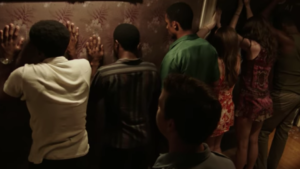 We needed to see the cost of police corruption and ideals of white supremacy on those who are beaten down and oppressed by it. We needed more of the story of Larry, who could have been a member of the Motown group, The Dramatics, but was so deeply scarred by that night at the motel, that his dreams were broken and he was brought to various forms of poverty. We needed more of the story of Greene, a Vietnam war soldier who was called a pimp, among other derogatory names because of his race. We needed more of the story of Desmukes (a severely underused John Boyega) and how the Detroit Police Department tried to pin the events on him instead of nailing the cops within their department. We don’t need to see what some critics have called exploitation of black bodies—something akin to torture porn. We don’t need to see these three cops avoid justice, we know that story. We need to see the effects of this violence, brokenness, sorrow, destruction and oppression of black men in that motel. Their stories are what we need to witness so we may understand the full cost of our investment in whiteness.
We needed to see the cost of police corruption and ideals of white supremacy on those who are beaten down and oppressed by it. We needed more of the story of Larry, who could have been a member of the Motown group, The Dramatics, but was so deeply scarred by that night at the motel, that his dreams were broken and he was brought to various forms of poverty. We needed more of the story of Greene, a Vietnam war soldier who was called a pimp, among other derogatory names because of his race. We needed more of the story of Desmukes (a severely underused John Boyega) and how the Detroit Police Department tried to pin the events on him instead of nailing the cops within their department. We don’t need to see what some critics have called exploitation of black bodies—something akin to torture porn. We don’t need to see these three cops avoid justice, we know that story. We need to see the effects of this violence, brokenness, sorrow, destruction and oppression of black men in that motel. Their stories are what we need to witness so we may understand the full cost of our investment in whiteness.
Unfortunately, Bigelow is a product of a society that plays to whiteness, one that tells stories that white people can “agree” with or shows black people as we, white people, expect them to be, act and live. The thing about the investment in whiteness is that we (white people) sometimes can live our whole lives without taking stock of and constantly being aware of our privilege. This includes art as well. Film narratives can be a profound thing, an experience that can shake people if they have eyes to see and ears to hear. But it also has the capability of reinvesting in stories that continue the narrative of those in power.
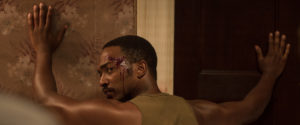 For all of Detroit’s solid direction, cinematography, visceral use of tension and acting throughout a nearly two-and-a-half-hour film, it failed to do the one thing that I truly believe Bigelow actually set out to do. It failed to tell the story of the injustice and the heartbreak of that night during the Detroit riots. It forgot to value the victims and their story and trials, instead retreading a narrative that we all know too painfully well by now. When the center of a film cannot hold, even the positive elements suffer. The white gaze of current Hollywood won out again and another black story was depleted by white imaginations.
For all of Detroit’s solid direction, cinematography, visceral use of tension and acting throughout a nearly two-and-a-half-hour film, it failed to do the one thing that I truly believe Bigelow actually set out to do. It failed to tell the story of the injustice and the heartbreak of that night during the Detroit riots. It forgot to value the victims and their story and trials, instead retreading a narrative that we all know too painfully well by now. When the center of a film cannot hold, even the positive elements suffer. The white gaze of current Hollywood won out again and another black story was depleted by white imaginations.

